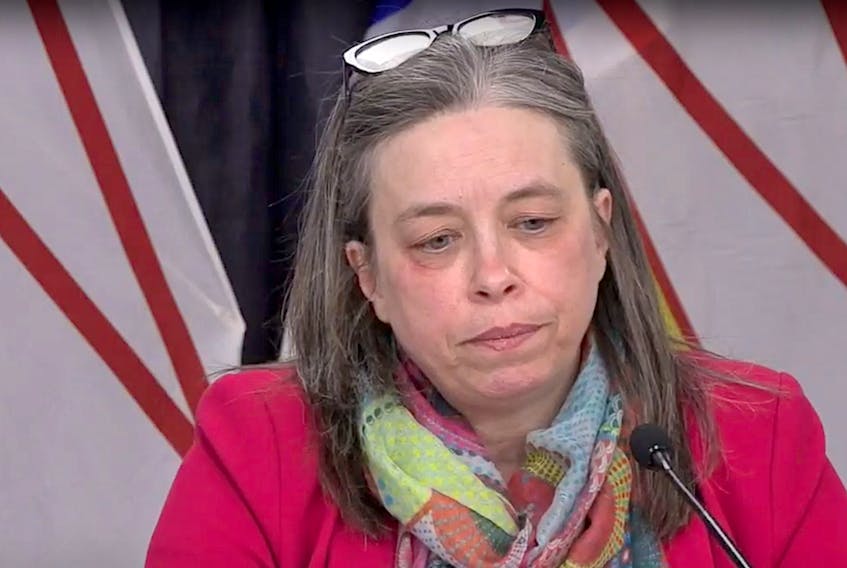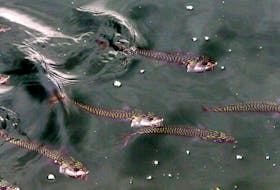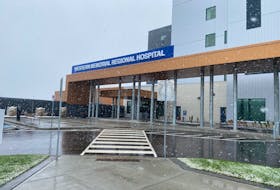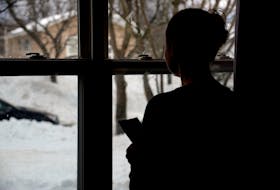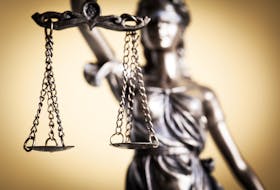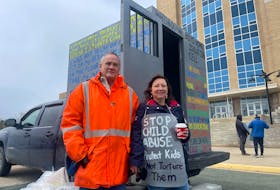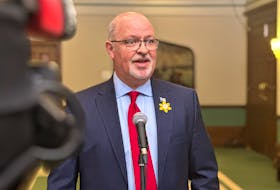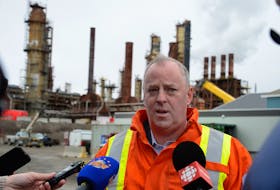ST. JOHN'S, N.L. — Newfoundland and Labrador’s Chief Medical Officer of Health suggests complacency based on previously low numbers was a factor in the quickly rising number of COVID-19 cases in the province.
“I believe going so long with low case-counts of COVID led to complacency and we are now seeing the repercussions," said Dr. Janice Fitzgerald. "This is something we had worried about… and cautioned against."
Fitzgerald’s remarks came at Wednesday’s provincial COVID-19 briefing, where 53 new confirmed cases, as well as 32 presumptive positive cases, were revealed. That’s the most ever confirmed cases on a single day in the province since the start of the pandemic.
All of the new cases involve people in the Eastern Health Region.
That means there are 110 confirmed active cases in Newfoundland and Labrador — 83 of which have been announced in the last two days.
Forty-four of the confirmed cases announced Wednesday — or over 80 per cent of them — involve people under the age of 20, continuing a recent trend that began over the weekend with positive tests involving individuals at Mount Pearl Senior High School.
The overall numbers are sure to rise, declared Fitzgerald, who later in the briefing said she doesn’t expect to see lower numbers on Thursday than were announced Wednesday.
“We should expect to see this (trend) continue as contact-tracing continues and as testing continues,” said Dr. Fitzgerald, who later added the province is “in for a rough period in days and weeks ahead.”
With the explosion in numbers, Fitzgerald announced a return to some public restrictions that had been put in place during the early days of the pandemic.
She also said the Newfoundland and Labrador English School District (NLESD) had been advised to shut down in-class instruction for all schools in the St. John’s metro region; prior to Wednesday's briefing, only area high schools had been closed.
Just minutes before Fitzgerald spoke at the briefing, the NLESD had announced the advice was being heeded.
Please be advised that the District has suspended in-class instruction for K to 12 schools St. John’s & Area Schools;
— NLESD (@NLESDCA) February 10, 2021
Extra-Curricular/Co-Curricular Activities Cancelled Province-wide on the advice of public health.
More info to be shared at today's #COVID19 briefing.#nlschools pic.twitter.com/MYwAbN3bUU
As for other restrictions announced Wednesday, they include keeping informal gatherings to household bubbles and the number of people informal gatherings —such as funerals, weddings, and religious/cultural ceremonies — to 10 people.
Wakes are prohibited.
In-person service at non-essential retail stores will not be permitted, although online/curbside pickup service is allowed. In-person dining at restaurants is ending, but again, online/takeout service can continue.
The restrictions on sports and arts and cultural activity (bands, music classes, plays, etc.) that had been announced for the Avalon Peninsula earlier this week are being extended province-wide.
Child-care services can continue to operate, although Dr. Fitzgerald says those parents who can do so, should keep children who normally attend daycare at home for the next two weeks.
➡️ Child care services will remain open. We must maintain our front-line essential workforce and therefore child care facilities are necessary. We strongly recommend, however, if you are able to keep your child at home for the next two weeks, that you do so.
— Dr. Janice Fitzgerald (@CMOH_NL) February 10, 2021
For a third straight day, Dr. Fitzgerald was joined by Liberal Leader Andrew Furey and Dr. John Haggie, the province’s Health Minister, for a briefing, this one featuring questions from 10 different journalists, about double the number who virtually attended such updates a week ago.
With a provincial election scheduled for just three days from now, questions to Furey almost exclusively dealt with whether the election could — or should be — postponed giving the growing public-health crisis, although he gave no real indication a delay was under consideration.
Dr. Fitzgerald also got swept up in the issue, most specifically regarding Elections Newfoundland and Labrador’s plans to establish drive-thru voting centres to allow the hundreds‚ perhaps thousands — of electors who now find themselves in quarantine because of the recent outbreaks — a chance to cast ballots. When asked her views about the drive-thru plans, especially since she had earlier stated quarantines restricted isolated people to their own property, Dr. Fitzgerald said she would need to see the details of the Election NL scheme before commenting. However, in a more general sense, when it came to ensuring a safe election, Dr. Fitzgerald simply said “we'll have to find a way.”
Please be advised that the District has suspended in-class instruction for K to 12 schools St. John’s & Area Schools;
— NLESD (@NLESDCA) February 10, 2021
Extra-Curricular/Co-Curricular Activities Cancelled Province-wide on the advice of public health.
More info to be shared at today's #COVID19 briefing.#nlschools pic.twitter.com/MYwAbN3bUU
Dr. Fitzgerald has undoubtedly become the face of the province’s fight against COVID-19, a battle that, to this point, would have to be described as successful, especially in comparison to other jurisdictions in Canada and North America,
However, many observers on social media are saying that face is now showing the strain of dealing with the biggest outbreak in the province since the start of the pandemic, and one coming in the final week of a provincial election campaign.
Near the end of Wednesday’s briefing, when Dr. Fitzgerald was asked by Sarah Smellie of the Canadian Press “How are you feeling today?” the answer came with a little shoulder shrug.
“It is what it is. This is what COVID does,” said Dr. Fitzgerald before returning to the subject of complacency she had mentioned in earlier remarks.
“It’s a bit disappointing to see the number of contacts that people have had. I think we really need to do better when it comes to reducing those contacts, and I think people across the island need to take a lesson here and think about how they are going to reduce those contacts.
“We’ve had our few practice runs (with earlier, smaller clusters) in Deer Lake and Harbour Breton and Grand Bank. and now here we are, with the big one.
“We really need to start taking this seriously.”

